If you’ve ever started up a business, basically, any type of business, then you probably know that it feels like being thrown into a whirlwind of endless tasks, such as picking a location, training staff, figuring out why the website is glitching, and, oh yeah, making sure your plumbing doesn’t turn into a horror show Read more
Whats New
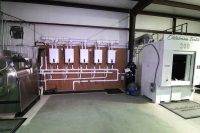
If you’ve ever started up a business, basically, any type of business, then you probably know that it feels like being thrown into a whirlwind of endless tasks, such as picking a location, training staff, figuring out why the website is glitching, and, oh yeah, making sure your plumbing doesn’t turn into a horror show.
Now, sure, you might put some consideration into the bathroom design, but not really the plumbing, right? Well, plumbing isn’t exactly the shiny, exciting part of running a business, but it’s one of those things that can quietly ruin everything if it’s not handled right. From a residential standout (for your home), you know this, but it’s like that thought goes out the window the second it’s commercial plumbing.
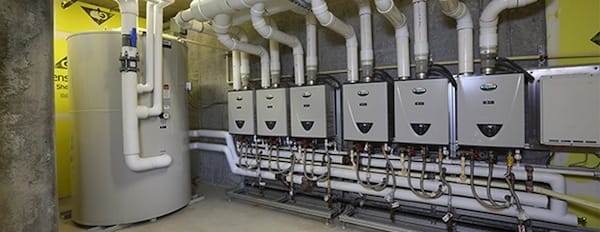
Thinking Commercial Plumbing Is Just Bigger Residential Plumbing
There’s this assumption floating around that commercial plumbing is basically residential plumbing on steroids. Wrong. Actually, commercial plumbing systems are like a different species—they have to handle way more pressure, higher volumes, and, let’s face it, a lot more wear and tear.
Actually, here’s a good example. So, just imagine opening a coffee shop. Those sinks are going to be used non-stop, the toilets will see more traffic than a rush-hour freeway, and every pipe behind the scenes has to handle that constant demand. So, if the plumbing isn’t built to keep up, it’s only a matter of time before the problems start, and when they do, they’ll bring everything to a screeching halt.
Forgetting That Plumbing Needs Maintenance Too
Okay, now here’s the thing: pipes don’t magically take care of themselves. But believe it or not, so many new businesses set up their plumbing and then totally forget about it until something goes wrong. And when it goes wrong?
Well, it goes really wrong. Just think of leaks, clogs, or even an unexpected indoor waterfall in the middle of your lunch rush. Even if you don’t own a cafe, but something else, like a carwash, well, that might be even more important because a business like that can’t run unless there’s plumbing.
Preventive maintenance might not sound glamorous, but it’s the difference between running a smooth operation and dealing with plumbing chaos. For example, if a business relies on pressure washing equipment, such as a car wash, even a tiny hiccup in water flow can be thrown off the whole day. Overall, some regular check-ups from a commercial plumber can catch those issues before they spiral out of control.
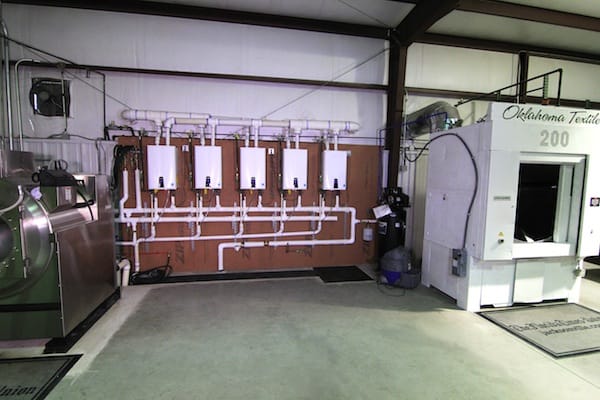
Going Cheap on Plumbing to Save Money
Look, saving money is important when starting out. Every penny counts, right? But trying to cut costs by hiring the cheapest plumber or opting for bargain-basement fixtures is like trying to build a house on a shaky foundation. It might hold up for a while, but when it collapses, it’s going to cost you way more to fix. Seriosuly, don’t make that mistake.
Ignoring Plumbing Codes and Regulations
In all honesty, nobody starts a business thinking, “Can’t wait to dive into local plumbing codes!” It’s not exactly fun. But at the same time, if you ignore them, well, that’s a massive mistake.
Basically, every city has its own set of rules, and they’re there for a reason, and it’s to make sure everything works safely and efficiently. So, just skipping this step might save some hassle in the short term, but it could land you in a heap of trouble later.
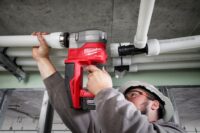
The water you rely on for drinking and cleaning should be just as pure and clear as essential. While a slightly higher mineral content may not directly harm you, it can cause significant issues for your plumbing over time. Ensure the water flowing from your taps is safe for consumption. Water quality plays a key Read more
The water you rely on for drinking and cleaning should be just as pure and clear as essential. While a slightly higher mineral content may not directly harm you, it can cause significant issues for your plumbing over time. Ensure the water flowing from your taps is safe for consumption. Water quality plays a key role in many aspects of your life. Clean water is essential for your health and daily routines, as well as for maintaining the condition of your clothes and dishes.
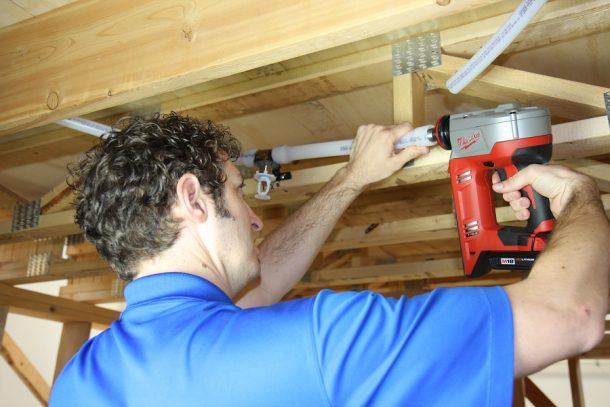
Schedule a Plumbing Pipe Inspection
Even today, many homes still rely on outdated and hazardous lead pipes. Some also use cast iron pipes, which are less harmful than lead and prone to rust over time. Signs like brownish tap water or visible rust particles often indicate that your home’s metal pipes are deteriorating.
Additionally, rust in your water supply might stem from an aging water heater, where corrosion can occur within the tank or on components in tankless systems. To address these issues, consult a plumber to explore updated plumbing solutions like PVC or durable plastic pipes, which are excellent long-term replacements.
Set Up a Water Filtration System
Water treatment systems improve the quality of the water in your home. Many water supplies contain hardness, which causes scales to accumulate on appliances, block showerheads, make fabrics feel coarse, and reduce water flow through pipes.
Adding a water softener can resolve these issues by removing hardness. These systems use a unique material to eliminate magnesium and calcium ions responsible for scaling. They can be installed to treat the water supply for your entire home, providing an affordable way to enjoy soft water. Get San Antonio water softeners installed soon to take advantage of these benefits for your home.
Schedule Your Septic Tank Cleaning
If you own a septic tank, have it emptied before it overflows into your yard. An overflow could cause raw sewage to seep into the groundwater, and potentially even your well water. For older septic tanks, consider speaking with a plumber about upgrading to a newer system that directs greywater, like the water from washing laundry, dishes, or bathing, out into your yard instead of into the septic tank. This setup can help water your lawn while reducing the tank’s filling speed. However, this option may not be permitted in certain states.
Flushing
Let cold water taps run for two minutes before using it for drinking or cooking. The quality of water can decrease when it sits unused in pipes for several hours. Alternatively, everyday household activities can help flush the pipes and draw fresh water from the distribution system into your home. These activities include:
- Running the dishwasher
- Taking a shower
- Doing laundry
- Flushing the toilet
Replace Your Tap Aerators
Tap aerators are small screens attached to the ends of taps. While they don’t filter water as thoroughly as dedicated water filters, they do help screen the water passing through. Over time, contaminants and sediment can build up in the aerators, impacting the water’s taste, flow, and pressure.
Replacing tap aerators occasionally is a good idea to maintain water quality and performance. They’re affordable and simple to install, just screw them on or off. You can either swap out the screens or replace the entire aerator when replacing.
Endnote
There are many ways to enhance your water quality, and this post covers just a few of them. By applying these approaches, you can ensure your water is clean and safe. Your water quality plays a key role in both your health and overall quality of life. Taking steps to improve it will lead to meaningful improvements in your well-being.
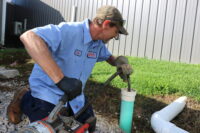
Plumbing problems pose several risks. Old or damaged pipes can crack and flow into underground water, spoiling the water supply. The contaminated water causes health issues. Plumbing issues can cause substantial water damage to your house. Familiarizing yourself with the plumbing concerns you’ll likely experience can help ensure they’re identified and resolved before escalating. Outlined Read more
Plumbing problems pose several risks. Old or damaged pipes can crack and flow into underground water, spoiling the water supply. The contaminated water causes health issues. Plumbing issues can cause substantial water damage to your house. Familiarizing yourself with the plumbing concerns you’ll likely experience can help ensure they’re identified and resolved before escalating. Outlined below are four common plumbing problems and how to fix them.
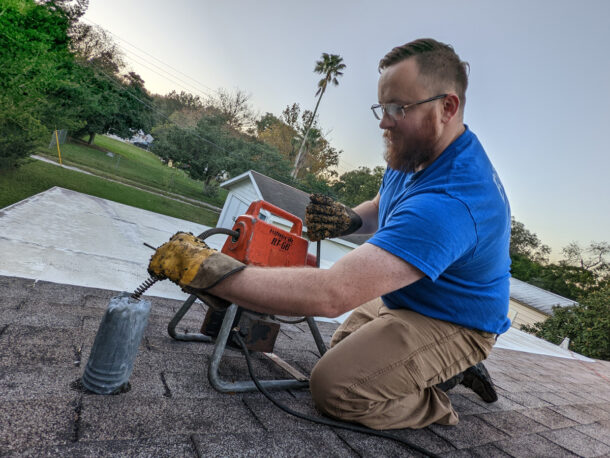
1. Old pipes
A robust, efficient plumbing system ensures your home’s safety and comfort. Nevertheless, as the infrastructure deteriorates, the hidden pipe network that delivers your water and removes waste may pose substantial threats to your property and well-being. Old pipes pose several risks, including the following:
- Pipe ruptures: Old pipes can, in extreme cases, burst or rupture, resulting in significant water damage that necessitates immediate repairs. These ruptures are usually due to the pipe’s structural weaknesses or high water pressure
- Water damage and leaks: As plumbing pipes age, they corrode and weaken, causing cracks and leaks that lead to significant water damage. Besides being costly to repair, water damage creates an ideal environment for mold and mildew to thrive
Old pipes can also result in reduced water quality and water pressure. Trenchless pipe rehabilitation can help you restore old and damaged pipes without digging. Unlike traditional pipe repairs, your trenchless pipe lining project doesn’t need excessive excavation or digging, and the process is cost-effective.
2. Blocked drains
Clogged drains are an inconvenience that can ruin your hygiene activities and daily routine completely. Your home’s drains can become clogged for various reasons, including:
- The toilets can get clogged when you flash things that don’t break down, including feminine hygiene products
- Kitchen drains usually get blocked due to fat and grease buildup
- The outdoor drains get clogged because of leaves and debris buildup. Tree roots can grow into pipes and form obstructions, ensuring water doesn’t flow through
You can call a professional plumbing expert to fix your blocked drains. Alternatively, you can use hot water, homemade solutions, or plungers to unclog your drains.
3. Leaky pipes
Leaky pipes are another common plumbing problem that causes several dangers, such as:
- Water damage: It’s among the most severe effects of leaky pipes because they can harm your home’s structure. When ignored, water damage can escalate to the point of compromising your home’s structural integrity
- High water bills: Leaky pipes can waste a substantial amount of water over time, resulting in increased water bills
- Mold growth: It’s another severe leaky pipe consequence. Since mold thrives in damp areas, leaky pipes create the perfect breeding ground
Hiring a professional repiping or repair service can help resolve leaky pipes.
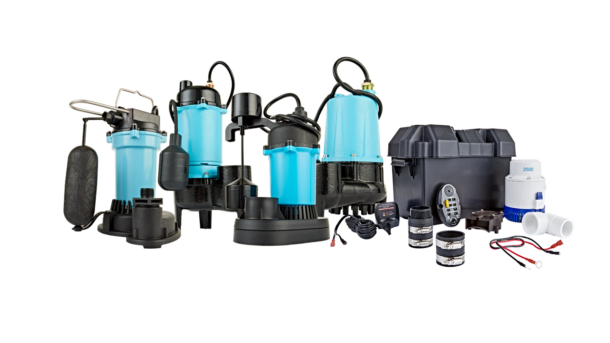
4. Sump pump issues
Sump pumps help keep your basement dry and safeguard your property from water damage. Their malfunction has severe consequences that can result in expensive repairs and possible health hazards, including mold growth. The most common problems with sump pumps include:
- Overwhelmed sump pump
- Lack of water in the sump pit
- Frozen or clogged discharge pipe
- Sump pump clogs
If your sump pump fails, you’ll experience regular cycling, unusual noises, and visible damage or rust. If sump pump issues persist despite routine maintenance, consider calling an expert for an accurate diagnosis. This will help you determine whether to repair or replace your sump pump.
Endnote
Plumbing issues pose many risks for homeowners. However, familiarizing yourself with common plumbing problems, including old pipes, blocked drains, and leaky pipes, can help you fix them before they escalate.

You know, as a plumbing engineer, it can be an extremely risky industry, and it pays for everyone to be aware of the risks that you can come into contact with by joining your day-to-day job. Working as a self-employed plumbing engineer involves infinitely more risks because, as a sole person, you are responsible for staying Read more
You know, as a plumbing engineer, it can be an extremely risky industry, and it pays for everyone to be aware of the risks that you can come into contact with by joining your day-to-day job. Working as a self-employed plumbing engineer involves infinitely more risks because, as a sole person, you are responsible for staying safe at all times and working through the correct safety laws and protocols put in place to ensure the safety of both yourself, your clients, and your working environment.
So whether you find yourself working on plans to install brand new plumbing on a new residential property, working with people to extend their homes, or your work takes you to a construction site, being aware of your responsibilities as a plumbing engineer can help to keep you safe at all times and ensure that the work you carry out as completed meets the highest standards and doesn’t pose any safety risks to the environment or to the users.
So what do you need to know, and what do you need to do to ensure your safety at all times?

OSHA
OSHA, the cornerstone of workplace safety, controls and sets the standards for all health and safety initiatives for workplace employers and employees. For plumbers and plumbing engineers, specific sets of standards are in place and designed by OSHA to ensure that you can work safely, especially in hazardous environments. These standards include hazard protection, materials protection, and confined space regulations, providing you with a secure framework for your work.
Use Proper Tools and Equipment
As mentioned, during the course of your working day or week, you can face a range of different environmental scenarios and hazardous materials. Ensuring you’re using the correct tools and equipment for the job can help you minimize and reduce any potential risks or impacts of an incorrect job being carried out.
As a plumbing engineer, you will be responsible for designing, instaling and the maintenance of plumbing systems in various scenarios and environments, whether residential properties, chemical plants, hospitals, shopping malls, or anything else.
This means that you need to know what tools and equipment are required for the job at hand. So whether this is knowing the right gasket material types for the type of plumbing work and substances flowing through the plumbing or you need to understand the intricacies of navigating different construction materials to implement the right plumbing structure and connections and being able to understand the scope of the work can help you to ensure that you’ve got the right tools and equipment for use at all times.
PPE
Everyone is aware of what PPE is; however, due to the nature of the work you’ll be carrying out, ensuring you have the correct type of PPE for every single type of job is paramount for health and safety. As a self-employed engineer, the last thing you want is to be injured at work due to being negligent and then not being able to work for prolonged periods while you recover from accidents or injuries. The correct PPE will, of course, depend on the work you carry out, but at a minimum, this includes safety gloves, glasses, protective clothing, and even still cap boots to protect your feet while working.
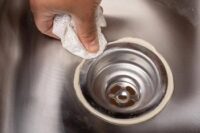
Having a home is one of the most rewarding things, but it becomes a frustrating experience when plumbing problems occur. The more you know the better, since that can save time and money — not to mention keep your little few strands of hair in. Plumbing can seem like a complicated system, and rightly so Read more
Having a home is one of the most rewarding things, but it becomes a frustrating experience when plumbing problems occur. The more you know the better, since that can save time and money — not to mention keep your little few strands of hair in.
Plumbing can seem like a complicated system, and rightly so as we never see the full scope of piping behind our walls. However, learning some basics helps prevent big problems from popping up out of nowhere while also being able to address smaller issues independently.
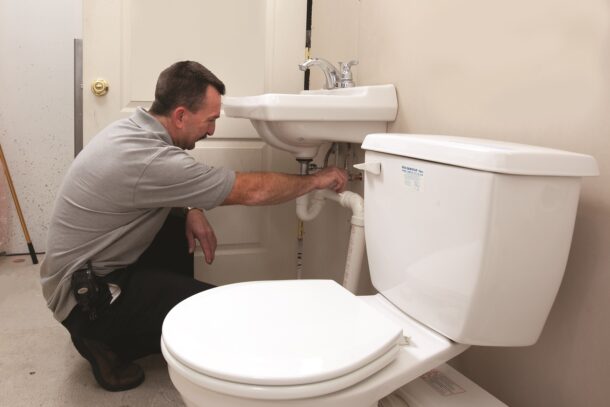
Here are 10 Important Plumbing Tips Every Homeowner Should Know:
- Know the Location of Your Water Meter and Main Shut Off Valve
Location of shut-off One of the most important details that any homeowner needs to know is where your manual main water turn-off valve is. A burst pipe can occur unexpectedly, and shutting off the water supply fast is vital to reducing damage in your home.
- Understand How Your Water Heater Works
The best setting for most water heaters is 120°F or roughly the Low-Medium setting on gas. This temperature can keep scalding at bay while still offering energy-efficient heat from your unit. Periodically monitor the temperature of your water heater, and flush it annually to eliminate accumulation sediment for efficiency purposes and extended lifespan.
- Don’t Treat Your Drains Like a Trash Can
Do not flush anything other than toilet paper and human waste. Specifically, wipes, paper towels, and feminine hygiene products should not make it into your pipes as they cause sewer backups. In addition, never pour grease on the drain of your kitchen because it hardens and adheres to piping creating very serious blockages.
- Use Drain Strainers
Placing strainers in your kitchen and bathroom sinks will block hair, food particles, and other debris from entering the drain- as prevention is key. It is essential to routinely clean these filters for optimal water flow.
- Fix Leaks Promptly
But a slow drip could waste gallons of water from your pipes over weeks or months, and it can make your utility bills grow. The leaks can also cause water damage and mold. Repair a leaking faucet or pipe quickly and call in expert help if you need it.
- Know the Signs of Hard Water
Mineral buildup can cause clogging in your pipes, reduce the efficiency of water heaters, and damage appliances if you live in a hard water area. Hard Water Hard water will leave soap scum on shower doors, no shine to dishes, and dry skin. ~ via Dmarie1031 A water softener can help you avoid the buildup of mineral deposits, which gives them a longer shelf life.
- How To Safely Unclog a Toilet
Most people will find a plunger useful when clearing a blocked toilet. When using a plunger, fill the bowl with enough water to cover its rubber part and apply moderate pressure in an even push-pull motion. If this doesn’t solve the problem, avoid using chemical drain cleaners as they can harm your pipes; choose a snake or call in a plumber when needed.
- Check Exposed Pipes for Wear
If you have any exposed pipes in basements, crawl spaces, or under sinks check them for preliminary signs of corrosion around leaks. Check on them periodically and if you notice any rusting, cracking, or leaking chances are high that an issue is about to develop indefinitely- Fix it right away! Dealing with these problems early on can help prevent significant water damage.
- Insulate Pipes in Cold Weather
In cold climates, it is important to insulate your pipes to prevent freezing and bursting during winter. Cover exposed pipes in areas like basements, attics, and garages with foam pipe insulation. Additionally, in extremely cold weather, you may want to keep faucets dripping slowly to maintain water flow and minimize the risk of freezing.
- Know When to Call a Professional
Knowing when to seek professional help is crucial in plumbing situations. While some issues can be resolved independently, others require the expertise of a licensed plumber. If you encounter recurring clogs, or water heater malfunctions, or suspect a main sewer line blockage, it is advisable to contact a professional.(no follow link) Attempting complicated repairs without adequate knowledge can exacerbate problems and result in higher costs.
